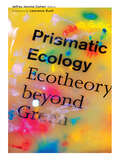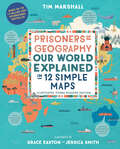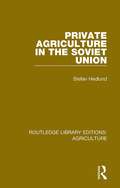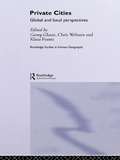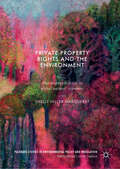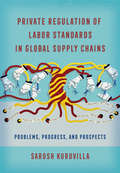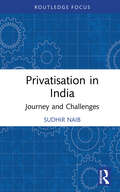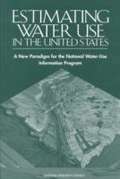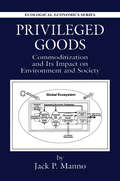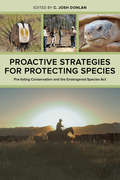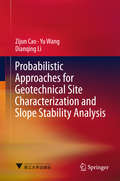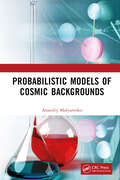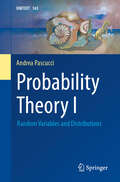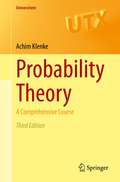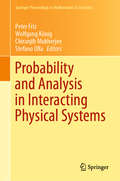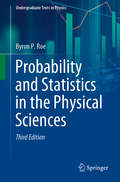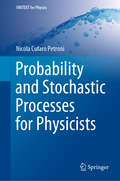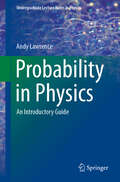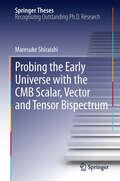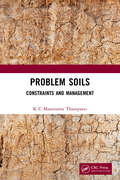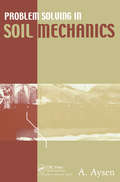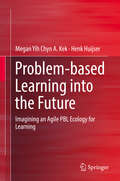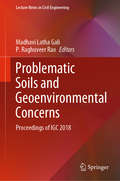- Table View
- List View
Prismatic Ecology: Ecotheory beyond Green
by Jeffrey Jerome CohenEmphasizing sustainability, balance, and the natural, green dominates our thinking about ecology like no other color. What about the catastrophic, the disruptive, the inaccessible, and the excessive? What of the ocean&’s turbulence, the fecundity of excrement, the solitude of an iceberg, multihued contaminations? Prismatic Ecology moves beyond the accustomed green readings of ecotheory and maps a colorful world of ecological possibility.In a series of linked essays that span place, time, and discipline, Jeffrey Jerome Cohen brings together writers who illustrate the vibrant worlds formed by colors. Organized by the structure of a prism, each chapter explores the coming into existence of nonanthropocentric ecologies. &“Red&” engages sites of animal violence, apocalyptic emergence, and activism; &“Maroon&” follows the aurora borealis to the far North and beholds in its shimmering alternative modes of world composition; &“Chartreuse&” is a meditation on postsustainability and possibility within sublime excess; &“Grey&” is the color of the undead; &“Ultraviolet&” is a potentially lethal force that opens vistas beyond humanly known nature.Featuring established and emerging scholars from varying disciplines, this volume presents a collaborative imagining of what a more-than-green ecology offers. While highlighting critical approaches not yet common within ecotheory, the contributions remain diverse and cover a range of topics including materiality, the inhuman, and the agency of objects. By way of color, Cohen guides readers through a reflection of an essentially complex and disordered universe and demonstrates the spectrum as an unfinishable totality, always in excess of what a human perceives.Contributors: Stacy Alaimo, U of Texas at Arlington; Levi R. Bryant, Collin College; Lowell Duckert, West Virginia U; Graham Harman, American U in Cairo; Bernd Herzogenrath, Goethe U of Frankfurt; Serenella Iovino, U of Turin, Italy; Eileen A. Joy; Robert McRuer, George Washington U; Tobias Menely, Miami U; Steve Mentz, St. John&’s U, New York City; Timothy Morton, Rice U; Vin Nardizzi, U of British Columbia; Serpil Oppermann, Hacettepe U, Ankara; Margaret Ronda, Rutgers U; Will Stockton, Clemson U; Allan Stoekl, Penn State U; Ben Woodard; Julian Yates, U of Delaware.
Prisoners of Geography: Our World Explained In 12 Simple Maps (illustrated Young Readers Edition) (Politics Of Place Ser. #1)
by Tim Marshall“For curious children ages 7–15, Prisoners of Geography has lots to fascinate.”—The Wall Street Journal The secret world history written in the mountains, rivers, and seas that shape every country’s politics, economy, and international relations—and our own lives—is revealed in this illustrated young readers edition of Prisoners of Geography, the million-copy international bestseller. History is a story—and it’s impossible to tell the whole tale without understanding the setting. In this eye-opening illustrated edition of the international bestseller Prisoners of Geography, you’ll learn to spot connections between geography and world affairs in ways you never noticed before. How did the US’s rivers help it become a superpower? Why are harsh, cold and swampy Siberia and the Russian Far East two of that country’s most prized regions? How come Japan prefers to trade along the coasts instead of across its land? What do the Himalayas have to do with war? With colorful maps that capture every continent and region, plus hundreds of illustrations that illuminate how our surroundings shape us, this one-of-a-kind atlas will inspire curious minds of all ages!
Prithvi Hamara Avas class 6 - NCERT - 23: पृथ्वी हमारा आवास ६वीं कक्षा - एनसीईआरटी - २३
by Rashtriy Shaikshik Anusandhan Aur Prashikshan Parishadपृथ्वी हमारा आवास 6वीं कक्षा का राष्ट्रीय शैक्षिक अनुसंधान और प्रशिक्षण परिषद् ने पुस्तक हिंदी भाषा में प्रकाशित किया गया है, इस पाठ्यपुस्तक में छह अध्याय दिए है। पाठ्यपुस्तक में सौरमंडल में पृथ्वी, ग्लोब: अक्षांश एवं देशांतर, पृथ्वी की गतियाँ, मानचित्र, पृथ्वी के प्रमुख परिमंडल और हमारा देश: भारत आदी के विषय पर चर्चा की गई है।
Private Agriculture in the Soviet Union (Routledge Library Editions: Agriculture #15)
by Stefan HedlundFirst published in 1989. Perestroika, it was widely believed, must succeed in agriculture before permanent change could be affected elsewhere in the Soviet economy. But Soviet agriculture had so far remained stubbornly inefficient and resistant to change. In this book Stefan Hedlund investigates the reasons for this state of affairs. The author gives an account of the emergence, development and performance of private agriculture in the Soviet Union. In particular he describes the essentials of the peculiarly Soviet hybrid of private and socialized agriculture. He places the private sector within the broader framework of Soviet agriculture. He saw Soviet agriculture as a ‘Black Hole’, ready to absorb any resources that came near, be they private plots, urban gardens, factory workshops or military units. Hedlund also examines the impact on the peasants as producers of decades of negative ideological pronouncements in Party propaganda, and of discrimination and at times outright harassment by local officials. He points out that this background makes the prospect of any positive response from the peasants to Gorbachev’s call for perestroika in agriculture extremely unlikely.
Private Cities: Global and Local Perspectives (Routledge Studies in Human Geography #Vol. 13)
by Chris Webster Georg Glasze Klaus FrantzFor the antagonist, private communities are icons of post-consensus, fragmenting civic society, enclosing and excluding by contractual constitution and sometimes by walls and gates. For others they are simply an efficient new way of organizing urban life. Contributed to, and edited by, an international team of leading authors, this revealing book constructs an interdisciplinary discourse on the global spread of private communities based upon empirical evidence. Case studies from the US, Latin America, the Middle East, Europe and China are used to explore local and global explanations of the phenomenon. Taking an institutionalist approach, this informative textbook for undergraduates, postgraduates, and researchers alike, develops a model in which cities are shaped by the interplay of local and global processes, and evolve at the interface of spontaneous and planned order. It draws together the various themes, propositions and hypotheses in a way that clarifies the questions by different social science perspectives and that poses researchable questions and new agendas.
Private Property Rights and the Environment: Our Responsibilities to Global Natural Resources (Palgrave Studies in Environmental Policy and Regulation)
by Shelly Hiller MargueratThis book explores the current notion and definition of property, and its interpretation and implementation in relation to the environment. The author examines two primary problems: the degradation of land, natural resources and animal abuse; and the increasing erosion of private property rights from property owners by the arbitrary interference of state governments. Examining texts from antiquity to contemporary legislation, it portrays the historical development of the understanding of “nature” as “property” and discusses our obligations towards the environment. Drawing on the most influential political-philosophical texts from all periods of property rights history, the author analyzes modern national and international legislation and case law to offer legally-grounded evidence and explanations. This book advocates the incorporation of a formula that guarantees the protection of property rights into the legal system, and imposes clear and effective responsibility on property owners to limit the use of natural resources and the abuse of animals. This book will appeal to practitioners, researchers and students with an interest in environmental and private property law.
Private Regulation of Labor Standards in Global Supply Chains: Problems, Progress, and Prospects
by Sarosh KuruvillaPrivate Regulation of Labor Standards in Global Supply Chains examines the effectiveness of corporate social responsibility on improving labor standards in global supply chains.Sarosh Kuruvilla charts the development and effectiveness of corporate codes of conduct to ameliorate "sweatshop" conditions in global supply chains. This form of private voluntary regulation, spearheaded by Nike and Reebok, became necessary given the inability of third world countries to enforce their own laws and the absence of a global regulatory system for labor standards. Although private regulation programs have been adopted by other companies in many different industries, we know relatively little regarding the effectiveness of these programs because companies don't disclose information about their efforts and outcomes in regulating labor conditions in their supply chains.Private Regulation of Labor Standards in Global Supply Chains presents data from companies, multi-stakeholder institutions, and auditing firms in a comprehensive, investigative dive into the world of private voluntary regulation of labor conditions. The picture he paints is wholistic and raw, but it considers several ways in which this private voluntary system can be improved to improve the lives of workers in global supply chains.
Privatisation in India: Journey and Challenges (Routledge Focus on Business and Management)
by Sudhir NaibThis book is a comprehensive work which incisively analyses, from a theoretically informed perspective, crucial aspects of India’s journey from partial divestiture to privatisation, accompanied by case studies of enterprises being privatised in FY 2022. Naib begins with the economic role of the state followed by theoretical and empirical evidence on the state versus private ownership in the first two chapters. Next, an overview of public sector in India including the New Public Sector Enterprise Policy for Atmanirbhar Bharat-2021 is discussed, before a broader examination of the global experience with privatisation is done. Naib then goes on to explore India’s journey from partial divestiture to privatisation from 1991 to 2021 in four time slots based on the political party in power. The book also looks at big ticket privatisation and asset monetisation proposed in FY 2022. Many criticised the design of National Monetisation Plan as it may lead to concentration of wealth, increasing inequalities, asset stripping, and consumers paying higher charges. The book closes by presenting six instances of big-ticket privatisations ranging from airlines, airports, banks, insurance, as well as industries such as petroleum and telecoms. The book’s timely data and analysis of key developments will interest researchers in the fields of divestiture and privatisation in India.
Privatization of Water Services in the United States: An Assessment of Issues and Experience
by Committee on Privatization of Water Services in the United StatesIn the quest to reduce costs and improve the efficiency of water and wastewater services, many communities in the United States are exploring the potential advantages of privatization of those services. Unlike other utility services, local governments have generally assumed responsibility for providing water services. Privatization of such services can include the outright sale of system assets, or various forms of public-private partnerships—from the simple provision of supplies and services, to private design construction and operation of treatment plants and distribution systems. Many factors are contributing to the growing interest in the privatization of water services. Higher operating costs, more stringent federal water quality and waste effluent standards, greater customer demands for quality and reliability, and an aging water delivery and wastewater collection and treatment infrastructure are all challenging municipalities that may be short of funds or technical capabilities. For municipalities with limited capacities to meet these challenges, privatization can be a viable alternative.Privatization of Water Services evaluates the fiscal and policy implications of privatization, scenarios in which privatization works best, and the efficiencies that may be gained by contracting with private water utilities.
Privileged Goods: Commoditization and Its Impact on Environment and Society
by Jack P. MannoWhat are the obstacles in the way of effectively solving the environmental crises of our time? What can we do to overcome them? These may be two of the most important questions heading into the 21st century. Organized human societies have the ability to completely change the world. While we have excelled at building, destroying and rebuilding, we h
Proactive Strategies for Protecting Species
by C. Josh DonlanNearly forty years old, the Endangered Species Act (ESA) remains a landmark act in conservation and one of the world’s most comprehensive laws designed to prevent species extinctions and support recovery efforts for imperiled species. A controversial law and often subject to political attack, the ESA is successful overall but not without difficulties. Those who enforce the ESA, for example, struggle to achieve viable recovery goals for many species. At the forefront of challenges is a reactive framework that sometimes leads to perverse incentives and legal battles that strain support and resources. Further, few species have been delisted. Proactive Strategies for Protecting Species explores the perspectives, opportunities, and challenges around designing and implementing pre-listing programs and approaches to species conservation. This volume brings together conservation biologists, economists, private and government stakeholders, and others to create a legal, scientific, sociological, financial, and technological foundation for designing solutions that incentivize conservation action for hundreds of at-risk species-prior to their potential listing under the ESA. This forward-thinking, innovative volume provides a roadmap for designing species conservation programs on the ground so they are effective and take place upstream of regulation, which will contribute to a reduction in lawsuits and other expenses that arise after a species is listed. Proactive Strategies for Species Protection is a guidebook for anyone anywhere interested in designing programs that incentivize environmental stewardship and species conservation.
Probabilistic Approaches for Geotechnical Site Characterization and Slope Stability Analysis
by Yu Wang Zijun Cao Dianqing LiThis is the first book to revisit geotechnical site characterization from a probabilistic point of view and provide rational tools to probabilistically characterize geotechnical properties and underground stratigraphy using limited information obtained from a specific site. This book not only provides new probabilistic approaches for geotechnical site characterization and slope stability analysis, but also tackles the difficulties in practical implementation of these approaches. In addition, this book also develops efficient Monte Carlo simulation approaches for slope stability analysis and implements these approaches in a commonly available spreadsheet environment. These approaches and the software package are readily available to geotechnical practitioners and alleviate them from reliability computational algorithms. The readers will find useful information for a non-specialist to determine project-specific statistics of geotechnical properties and to perform probabilistic analysis of slope stability.
Probabilistic Models of Cosmic Backgrounds
by Anatoliy MalyarenkoCombining research methods from various areas of mathematics and physics, Probabilistic Models of Cosmic Backgrounds describes the isotropic random sections of certain fiber bundles and their applications to creating rigorous mathematical models of both discovered and hypothetical cosmic backgrounds.Previously scattered and hard-to-find mathematical and physical theories have been assembled from numerous textbooks, monographs, and research papers, and explained from different or even unexpected points of view. This consists of both classical and newly discovered results necessary for understanding a sophisticated problem of modelling cosmic backgrounds.The book contains a comprehensive description of mathematical and physical aspects of cosmic backgrounds with a clear focus on examples and explicit calculations. Its reader will bridge the gap of misunderstanding between the specialists in various theoretical and applied areas who speak different scientific languages.The audience of the book consists of scholars, students, and professional researchers. A scholar will find basic material for starting their own research. A student will use the book as supplementary material for various courses and modules. A professional mathematician will find a description of several physical phenomena at the rigorous mathematical level. A professional physicist will discover mathematical foundations for well-known physical theories.
Probability Theory I: Random Variables and Distributions (UNITEXT #165)
by Andrea PascucciThis book provides a concise yet rigorous introduction to probability theory. Among the possible approaches to the subject, the most modern approach based on measure theory has been chosen: although it requires a higher degree of mathematical abstraction and sophistication, it is essential to provide the foundations for the study of more advanced topics such as stochastic processes, stochastic differential calculus and statistical inference. The text originated from the teaching experience in probability and applied mathematics courses within the mathematics degree program at the University of Bologna; it is suitable for second- or third-year students in mathematics, physics, or other natural sciences, assuming multidimensional differential and integral calculus as a prerequisite. The four chapters cover the following topics: measures and probability spaces; random variables; sequences of random variables and limit theorems; and expectation and conditional distribution. The text includes a collection of solved exercises.
Probability Theory: A Comprehensive Course (Universitext)
by Achim KlenkeThis popular textbook, now in a revised and expanded third edition, presents a comprehensive course in modern probability theory.Probability plays an increasingly important role not only in mathematics, but also in physics, biology, finance and computer science, helping to understand phenomena such as magnetism, genetic diversity and market volatility, and also to construct efficient algorithms. Starting with the very basics, this textbook covers a wide variety of topics in probability, including many not usually found in introductory books, such as: limit theorems for sums of random variables martingales percolation Markov chains and electrical networks construction of stochastic processes Poisson point process and infinite divisibility large deviation principles and statistical physics Brownian motion stochastic integrals and stochastic differential equations. The presentation is self-contained and mathematically rigorous, with the material on probability theory interspersed with chapters on measure theory to better illustrate the power of abstract concepts.This third edition has been carefully extended and includes new features, such as concise summaries at the end of each section and additional questions to encourage self-reflection, as well as updates to the figures and computer simulations. With a wealth of examples and more than 290 exercises, as well as biographical details of key mathematicians, it will be of use to students and researchers in mathematics, statistics, physics, computer science, economics and biology.
Probability and Analysis in Interacting Physical Systems: In Honor of S.R.S. Varadhan, Berlin, August, 2016 (Springer Proceedings in Mathematics & Statistics #283)
by Wolfgang König Stefano Olla Peter Friz Chiranjib MukherjeeThis Festschrift on the occasion of the 75th birthday of S.R.S. Varadhan, one of the most influential researchers in probability of the last fifty years, grew out of a workshop held at the Technical University of Berlin, 15–19 August, 2016. This volume contains ten research articles authored by several of Varadhan's former PhD students or close collaborators. The topics of the contributions are more or less closely linked with some of Varadhan's deepest interests over the decades: large deviations, Markov processes, interacting particle systems, motions in random media and homogenization, reaction-diffusion equations, and directed last-passage percolation. The articles present original research on some of the most discussed current questions at the boundary between analysis and probability, with an impact on understanding phenomena in physics. This collection will be of great value to researchers with an interest in models of probability-based statistical mechanics.
Probability and Statistics for Particle Physics
by Carlos MañaThis book comprehensively presents the basic concepts of probability and Bayesian inference with sufficient generality to make them applicable to current problems in scientific research. The first chapter provides the fundamentals of probability theory that are essential for the analysis of random phenomena. The second chapter includes a full and pragmatic review of the Bayesian methods that constitute a natural and coherent framework with enough freedom to analyze all the information available from experimental data in a conceptually simple manner. The third chapter presents the basic Monte Carlo techniques used in scientific research, allowing a large variety of problems to be handled difficult to tackle by other procedures. The author also introduces a basic algorithm, which enables readers to simulate samples from simple distribution, and describes useful cases for researchers in particle physics.The final chapter is devoted to the basic ideas of Information Theory, which are important in the Bayesian methodology. This highly readable book is appropriate for graduate-level courses, while at the same time being useful for scientific researches in general and for physicists in particular since most of the examples are from the field of Particle Physics.
Probability and Statistics in the Physical Sciences (Undergraduate Texts in Physics)
by Byron P. RoeThis book, now in its third edition, offers a practical guide to the use of probability and statistics in experimental physics that is of value for both advanced undergraduates and graduate students. Focusing on applications and theorems and techniques actually used in experimental research, it includes worked problems with solutions, as well as homework exercises to aid understanding. Suitable for readers with no prior knowledge of statistical techniques, the book comprehensively discusses the topic and features a number of interesting and amusing applications that are often neglected. Providing an introduction to neural net techniques that encompasses deep learning, adversarial neural networks, and boosted decision trees, this new edition includes updated chapters with, for example, additions relating to generating and characteristic functions, Bayes’ theorem, the Feldman-Cousins method, Lagrange multipliers for constraints, estimation of likelihood ratios, and unfolding problems.
Probability and Stochastic Processes for Physicists (UNITEXT for Physics)
by Nicola Cufaro PetroniThis book seeks to bridge the gap between the parlance, the models, and even the notations used by physicists and those used by mathematicians when it comes to the topic of probability and stochastic processes. The opening four chapters elucidate the basic concepts of probability, including probability spaces and measures, random variables, and limit theorems. Here, the focus is mainly on models and ideas rather than the mathematical tools. The discussion of limit theorems serves as a gateway to extensive coverage of the theory of stochastic processes, including, for example, stationarity and ergodicity, Poisson and Wiener processes and their trajectories, other Markov processes, jump-diffusion processes, stochastic calculus, and stochastic differential equations. All these conceptual tools then converge in a dynamical theory of Brownian motion that compares the Einstein–Smoluchowski and Ornstein–Uhlenbeck approaches, highlighting the most important ideas that finally led to a connection between the Schrödinger equation and diffusion processes along the lines of Nelson’s stochastic mechanics. A series of appendices cover particular details and calculations, and offer concise treatments of particular thought-provoking topics.
Probability in Physics: An Introductory Guide (Undergraduate Lecture Notes in Physics)
by Andy LawrenceThis textbook presents an introduction to the use of probability in physics, treating introductory ideas of both statistical physics and of statistical inference, as well the importance of probability in information theory, quantum mechanics, and stochastic processes, in a unified manner. The book also presents a harmonised view of frequentist and Bayesian approaches to inference, emphasising their complementary value. The aim is to steer a middle course between the "cookbook" style and an overly dry mathematical statistics style. The treatment is driven by real physics examples throughout, but developed with a level of mathematical clarity and rigour appropriate to mid-career physics undergraduates. Exercises and solutions are included.
Probing the Early Universe with the CMB Scalar, Vector and Tensor Bispectrum
by Maresuke ShiraishiThe non-Gaussianity in the primordial density fluctuations is a key feature to clarify the early Universe and it has been probed with the Cosmic Microwave Background (CMB) bispectrum. In recent years, we have treated the novel-type CMB bispectra, which originate from the vector- and tensor-mode perturbations and include the violation of the rotational or parity invariance. On the basis of our current works, this thesis provides the general formalism for the CMB bispectrum sourced by the non-Gaussianity in the scalar, vector and tensor-mode perturbations. Applying this formalism, we calculate the CMB bispectra from the two scalars and a graviton correlation and primordial magnetic fields, and then outline new constraints on these magnitudes. Furthermore, this formalism can be easily extended to the cases where the rotational or parity invariance is broken. We also compute the CMB bispectra from the scalar-mode non-Gaussianities with a preferred direction and the tensor-mode non-Gaussianities induced by the parity-violating Weyl cubic terms. Here, we show that these bispectra include unique signals, which any symmetry-invariant models can never produce.
Problem Soils: Constraints and Management
by K C ThampattiThis is a unique book that deals with the problem soils, their constraints and management in the Indian context. The book starts with the introduction on problem soils and the classification of these soils are included there under. In India, there is wide spread occurrence of soils with different types of constraints for crop production. Such soils are popularly called as “Problem Soils”. Cultivation in these soils is not so easy as several problems have to be tackled during cultivation. It may be either soil droughtiness or acidity or salinity etc. An attempt has been made in this book to cover most of the problematic soils in India. The classification of problem soils has been done based on the limitations they possess and the most dominant limitation is taken into consideration for grouping it under a particular class. Here five broader classes have been identified viz., soils with climatic problems; soils with physical problems; soils with chemical problems; soils with biological problems and soils with problems due to anthropogenic reasons.
Problem Solving in Soil Mechanics
by A. AysenWritten for university students taking first-degree courses in civil engineering, environmental and agricultural engineering, Problem Solving in Soil Mechanics stimulates problem-solving learning as well as facilitating self-teaching. Generally assuming prior knowledge of subject, necessary basic information is included to make it accessible to readers new to the topic. Filled with worked examples, new and advanced topics and with a flexible structure that means it can be adapted for use in second, third and fourth year undergraduate courses in soil mechanics, this book is also a valuable resource for the practising professional engineer as well as undergraduate and postgraduate students. Primarily designed as a supplement to Soil Mechanics: Basic Concepts and Engineering Applications, this book can be used by students as an independent problem-solving text, since there are no specific references to any equations or figures in the main book.
Problem-based Learning into the Future
by Henk Huijser Megan Yih Chyn A. KekIn this book we respond to a higher education environment that is on the verge of profound changes by imagining an evolving and agile problem-based learning ecology for learning. The goal of doing so is to humanise university education by pursuing innovative approaches to student learning, teaching, curricula, assessment, and professional learning, and to employ interdisciplinary methods that go far beyond institutional walls and include student development and support, curriculum sustainability, research and the scholarship of teaching and learning, as well as administration and leadership. An agile problem-based learning (PBL) ecology for learning deliberately blurs the boundaries between disciplines, between students and teachers, between students and employers, between employers and teachers, between academics and professional staff, between formal and informal learning, and between teaching and research. It is based on the recognition that all of these elements are interconnected and constantly evolving, rather than being discrete and static. Throughout this book, our central argument is that there is no single person who is responsible for educating students. Rather, it is everyone's responsibility - teachers, students, employers, administrators, and wider social networks, inside and outside of the university. Agile PBL is about making connections, rather than erecting barriers. In summary, this book is not about maintaining comfort zones, but rather about becoming comfortable with discomfort. The actual implementation is beyond the scope of this book and we envisage that changing perceptions towards this vision will itself be a mammoth task. However, we believe that the alternative of leaving things as they are would ultimately prove untenable, and more distressingly, would leave a generation of students afraid to think, feel, and act for themselves, let alone being able to face the challenges of the 21st century.
Problematic Soils and Geoenvironmental Concerns: Proceedings of IGC 2018 (Lecture Notes in Civil Engineering #88)
by Madhavi Latha Gali P. Raghuveer RaoThis volume comprises select papers presented during the Indian Geotechnical Conference 2018. This volume focuses on discussing the many challenges encountered in geoenvironmental engineering. The book covers sustainability aspects related to geotechnical engineering, problematic soils and ground improvement, use of geosynthetics and concepts of soil dynamics. The contents of this book will be useful to researchers and professionals working in geo-environmental engineering and to policy makers interested in understanding geotechnical concerns related to sustainable development.
